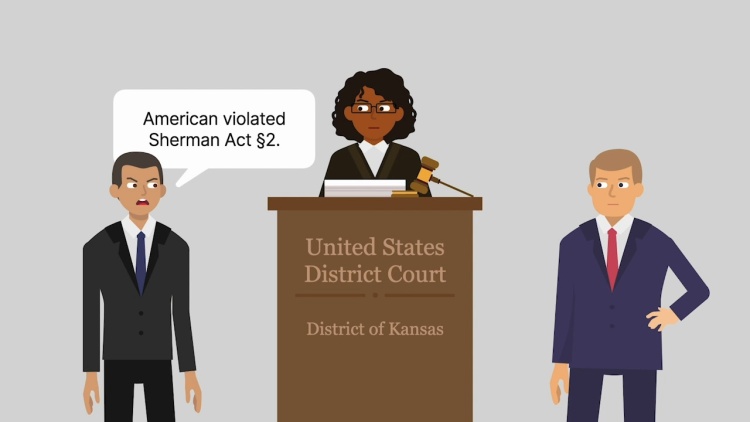United States v. AMR Corp.
United States Court of Appeals for the Tenth Circuit
335 F.3d 1109 (2003)
- Written by Tom Syverson, JD
Facts
Dallas Fort Worth International Airport (DFW) was an airport hub. American Airlines, Inc. (American) (defendant) served 70.2 percent of DFW passengers. American competed with a small number of low-cost carriers at DFW. The low-cost carriers accounted for about 2 percent of DFW passengers. To compete with these low-cost carriers, American temporarily lowered prices and increased flight capacities. After these competitive changes drove low-cost carriers from DFW, American returned its prices and flight capacities to approximately the same levels that existed prior to the competition with low-cost carriers. The United States (plaintiff) sued American, alleging that American attempted to monopolize and did monopolize the DFW market in violation of § 2 of the Sherman Act. The United States argued that American intended to develop a reputation for predatory pricing that would deter low-cost carriers from entering the DFW market. To demonstrate predatory pricing, the United States used four tests for showing that the lowered prices and increased flight capacities created a net economic loss for American. However, American argued that it did not price below cost using an average variable cost measure. The district court agreed with American and granted American’s motion for summary judgment.
Rule of Law
Issue
Holding and Reasoning (Lucero , J.)
What to do next…
Here's why 907,000 law students have relied on our case briefs:
- Written by law professors and practitioners, not other law students. 47,100 briefs, keyed to 996 casebooks. Top-notch customer support.
- The right amount of information, includes the facts, issues, rule of law, holding and reasoning, and any concurrences and dissents.
- Access in your classes, works on your mobile and tablet. Massive library of related video lessons and high quality multiple-choice questions.
- Easy to use, uniform format for every case brief. Written in plain English, not in legalese. Our briefs summarize and simplify; they don’t just repeat the court’s language.





